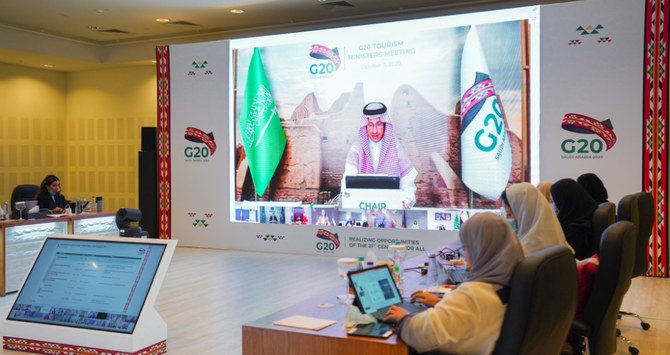
- ARAB NEWS
- 06 Jul 2025

Tourism touches almost every part of our societies. The sector has a unique power to transform lives and provide opportunities, including for those who might otherwise be left behind. Around the world, in countries at all development levels, many millions of jobs and businesses are dependent on a strong and thriving tourism sector. Tourism has also been a driving force in protecting natural and cultural heritage, preserving them for future generations to enjoy.
Tourism’s importance has never been in doubt. But, as well as being massively important for so many reasons, as we come to the end of what has been a difficult year for us all, tourism is now even more relevant. Significantly, leaders have heeded the UN World Tourism Organization’s (UNWTO) call to back up words of support for the sector with actions, and to work together to place inclusivity and sustainability at the heart of tourism’s recovery. As a result, the global tourism sector has never been more united or more determined.
Nowhere has this enhanced spirit of cooperation and determination to harness the full power of tourism as a pillar of recovery been more evident than in the recent meetings of the G20 nations. The successful meeting of the tourism ministers of this group of nations highlighted the central role the sector has now assumed on the world stage. It also made clear that, though facing an unprecedented crisis, tourism has stepped up to face the challenge, proactively leading the way in addressing the most pressing issues on the multilateral agenda and identifying a common path forward.
Furthermore, the G20 Leaders’ Summit, which was held last month in Saudi Arabia, saw tourism prioritized in the joint action plans for mitigating the social and economic impacts of the coronavirus (COVID-19) pandemic and then in building for the future. Indeed, one key output of this summit, the AlUla Framework for Inclusive Community Development — named after the home of the first UNESCO World Heritage Site in Saudi Arabia — explicitly recognizes the unique power of tourism to provide opportunities for those people and communities who might otherwise be left behind in the race to “build back better.”
The tourism ministers of all the G20 nations have signaled their intention to use the AlUla framework as a guide to map tourism’s recovery and to harness the power of the sector to drive sustainable and inclusive development. This builds on the significant progress we have already achieved during this difficult year in making tourism not just a part of the conversation but a central part of action plans. Already this year, UN Secretary-General Antonio Guterres has explicitly cited tourism on repeated occasions as an essential pillar of the Agenda for Sustainable Development — a sentiment echoed by government and business leaders the world over. More recently, UNWTO joined the leaders of more than 70 countries, as well as the CEOs of 40 leading tourism businesses, in signing the La Palma Declaration, reaffirming our shared commitment to embracing innovation to transform our sector and drive recovery forward.
The challenge now is to keep this momentum going, particularly since the restart of tourism is now underway in some parts of the world. To this end, the UNWTO Global Tourism Crisis Committee will on Wednesday (Dec. 9) meet for the seventh time, on this occasion hosted by Portugal. As it has from the very start of the COVID-19 crisis, the committee brings together every aspect of our wide, diverse sector, building on the inputs of governments, businesses and our fellow UN agencies. This will ensure we end the year as strongly and as determined as possible, laying the foundations for an equally strong start to 2021.
The COVID-19 crisis has provided us with a unique opportunity to rethink and realign tourism.
Zurab Pololikashvili
As we come to the end of what has been the most challenging year in recent memory for tourism and the people and communities that rely on it, we must meet the start of 2021 with optimism. Just like the world in general, tourism is now at a crossroads. The sector has come a long way from being seen as just a frivolous leisure activity — it has now become an established part of national and global development and a key pillar of the sustainable agenda. Now we must take the right path moving forward. The COVID-19 crisis has provided us with a unique opportunity to rethink and realign tourism, placing responsible and inclusive growth at the heart of everything we do.
As the leader of global tourism, UNWTO will continue to work closely with our members and non-members, in both the public and private sectors, to identify solutions to the unprecedented challenges we face. But we reiterate our call for governments to provide tourism with the strong support it needs to bounce back and then drive a wider recovery and transformative change for all. Standing still is not an option. Tourism will restart and grow back better for people and the planet.